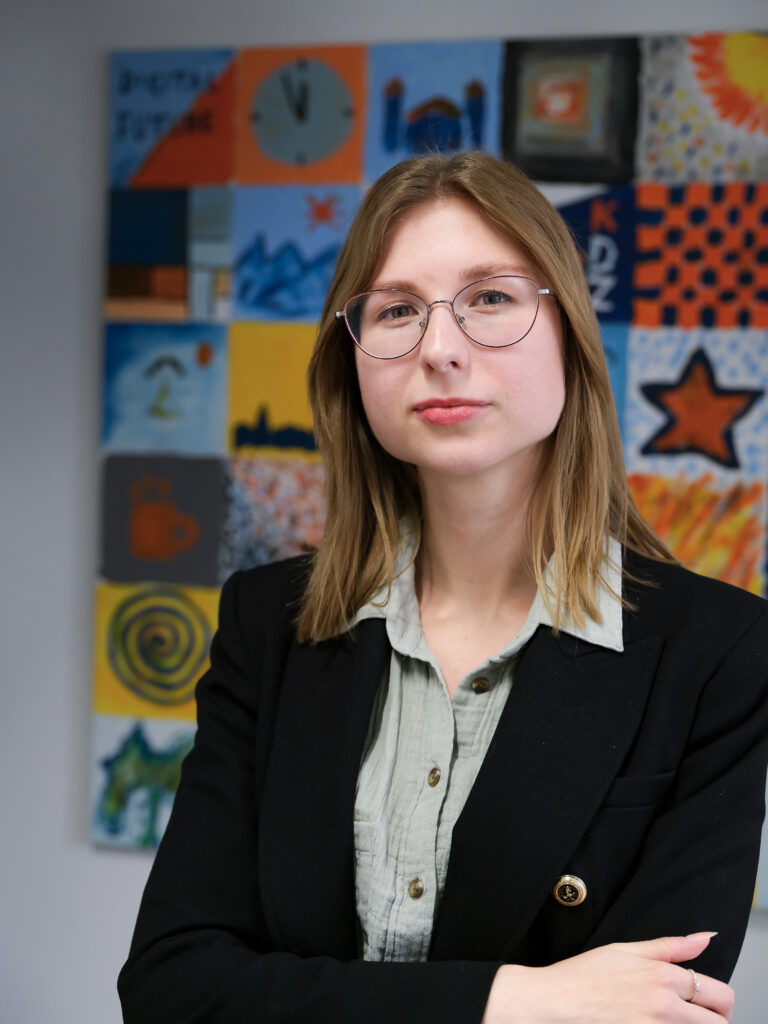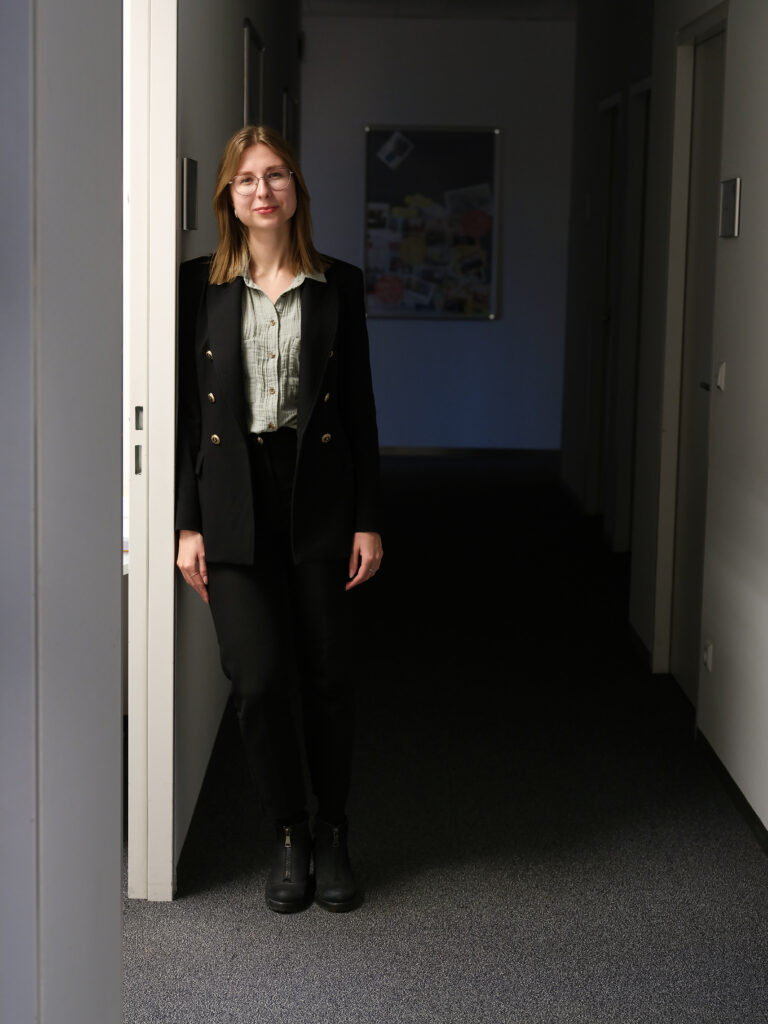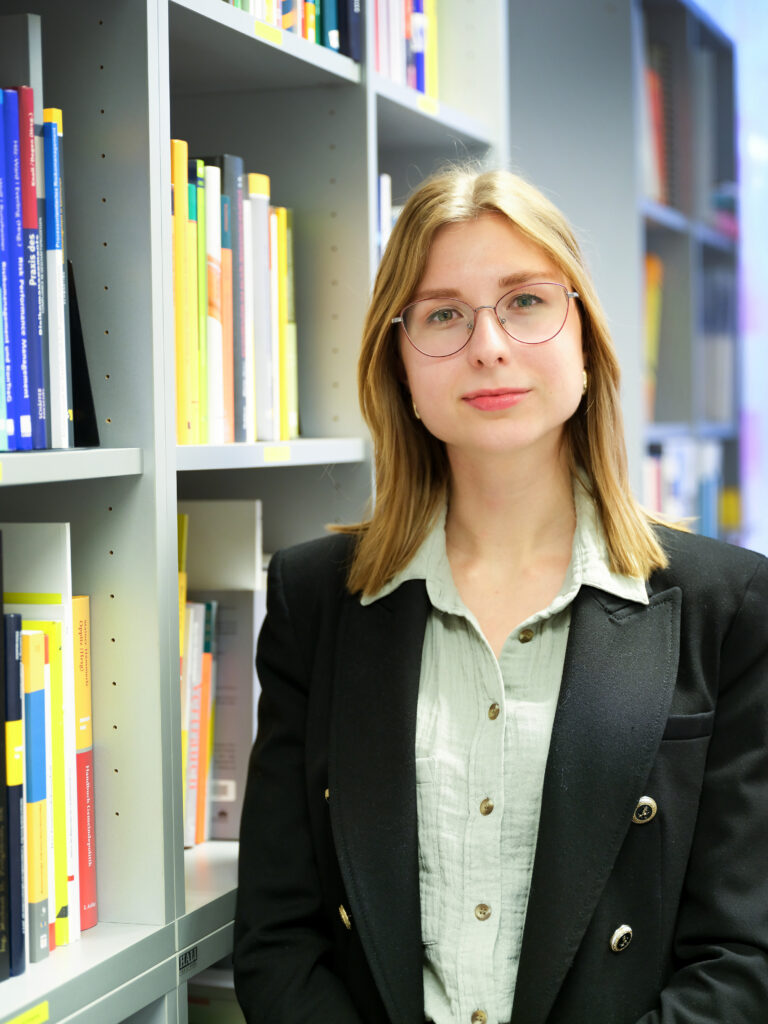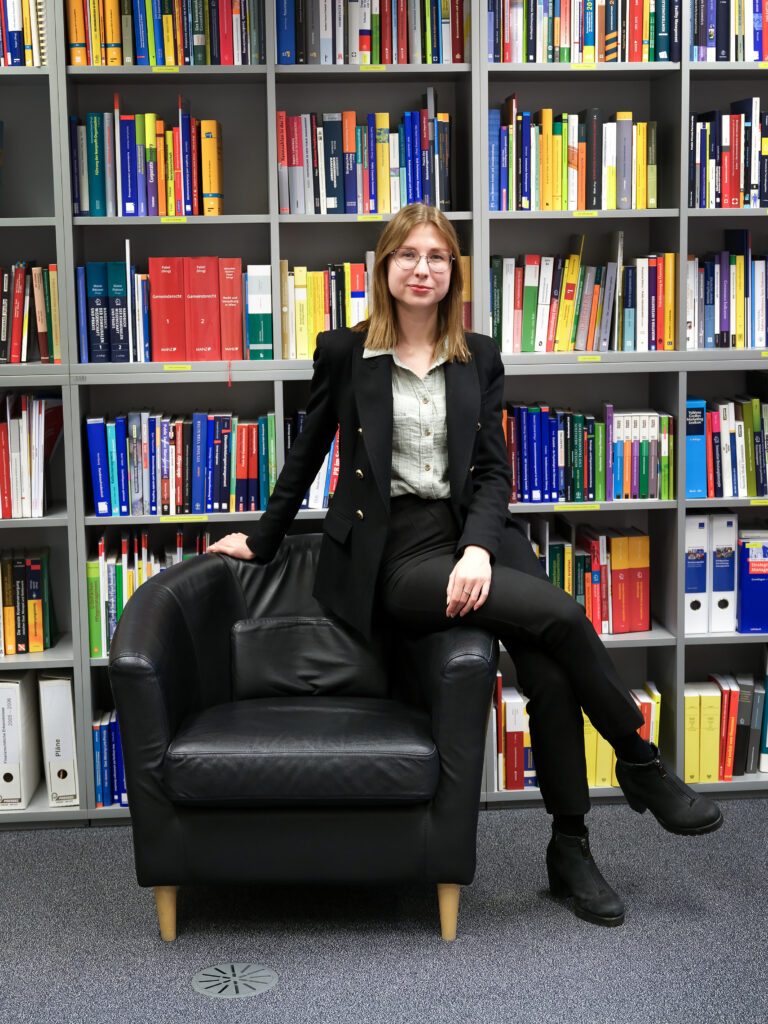
18 February 2025
Anastasiia Hatsenko: “Never stay silent about the war”
Anastasiia Hatsenko, Professional Integration HUB 2.0 Program Participant (KDZ Centre for Public Administration Research)
Intro
- Age: 24 years old
- City in Ukraine where you lived before the full-scale invasion (forced relocation): Kyiv
- Specialization: International Relations, International Public Affairs
PROFESSIONAL BACKGROUND
Before the full-scale invasion and to this day, I have worked as the head of the youth wing of the NGO “Paneuropean Union of Ukraine,” namely Paneuropa Kyiv. I was also an expert at the think tank ADASTRA, where I focused on topics such as Euro-Atlantic cooperation and information security. Additionally, I have internship experience in Ukraine related to my field. For instance, in 2020, I had the opportunity to complete an internship in the Office of the Vice Prime Minister for European and Euro-Atlantic Integration.
While considering my career choice, I wanted to combine everything that interests and inspires me. At different stages of my life, I aspired to become a journalist, director, screenwriter, detective, and more. At some point, I realized that diplomacy encompasses all of these elements, and I still believe that to be true.
FORCED EMIGRATION
The war found me in my bed in Kyiv around 5 a.m. I heard explosions, and my windows were shaking. I left my room to ask my parents what was going on and received a chilling response from my dad: “Putin has declared war.” Ironically, on the night of February 23 to February 24, I had just started reading the book “Nothing Is True and Everything Is Possible: The Surreal Heart of the New russia” by Peter Pomerantsev, still believing that war was impossible.
I came to Austria at the end of May 2022 after applying for a second Master’s degree at Central European University in January 2022. When the full-scale invasion began, I told myself that if I received a scholarship from CEU, I would seize the opportunity; if not, I would stay in Ukraine. On April 1, funny enough, Fool’s Day, I received a confirmation and an invitation from CEU.

LIFE IN AUSTRIA
The key challenges I face in Austria are related to differences in work culture. In Ukraine, I’m used to being able to plan and organize an event on very short notice, even for the next day. However, in Austria, scheduling appointments for calls, booking venues, and coordinating logistics require significantly more advance planning. Adjusting to this structured and pre-planned approach has been a learning experience for me.
The biggest obstacle I have encountered is the difficulty of finding a job. It took me around nine months, with varying intensity of applications and numerous interviews, to finally secure an internship thanks to the Professional Integration Hub. Typically, I would receive a rejection after the interview, and when I asked for feedback, I often received no response or was told that everything was fine but there were simply too many qualified candidates. In 2023, I managed to get an online internship in the Netherlands, but not in Austria.
I have encountered many stereotypes about Ukraine and some of them are the following: “Ukrainian language is just a dialect of russian, right?”, “It’s just Putin’s war”, “Ukraine doesn’t have technological development”, “russian language is banned in Ukraine, so they really came to protect people”, “Ukrainian culture is not so developed as russian”.
My message to Ukrainians living abroad is: respect the local culture, language, and traditions, but also help your friends abroad learn more about Ukraine, and never stay silent about the war.

Professional Integration HUB
I would describe the Professional Integration HUB as a support platform that empowers displaced professionals to navigate the job market, develop new skills, and access meaningful employment opportunities.
The biggest surprise about Austrian corporate culture is that, contrary to the common belief that Austrians are cold and reserved, I found them to be incredibly welcoming, warm, and easy-going once you start working with them. While building connections may seem challenging at first, once that initial barrier is broken, they turn out to be some of the friendliest and most open people I’ve met.
My key insights from the Austrian professional environment are as follows: My Austrian colleagues value clear, direct communication and set precise expectations for deadlines, responsibilities, and deliverables. This clarity has helped me improve my communication skills. Additionally, the Austrian work culture places a strong emphasis on work-life balance, which has influenced my perspective on productivity, teaching me to prioritize well-being alongside efficiency.
My experience working with international stakeholders has been crucial in fostering inclusive communication. On my first day as an intern, I helped navigate cross-cultural differences with the Uzbek delegation, and I am currently supporting a potential project with Ukrainian representatives. Additionally, when faced with unexpected changes in project deadlines, I drew on my experience working in high-pressure environments in Ukraine, where quick decision-making is often essential. My ability to remain calm and focus on solutions proved to be an asset during the preparation of the HORIZON application.

One of the most significant moments during the program, which I will remember for a lifetime, was the trip to Graz and the opportunity to meet with the Austrian and Ukrainian art community. As someone who isn’t deeply connected to the world of art, this experience was particularly eye-opening and inspiring. It allowed me to see the world from a completely different perspective, exploring the stories, emotions, and social reflections embedded in artistic expression.
PLANS AFTER PARTICIPATING IN THE PROGRAM
Being part of the Professional Integration HUB highlighted the importance of fostering inclusive workplaces where people from diverse backgrounds can thrive. Witnessing the program’s efforts to support displaced professionals shaped my ambition to contribute to initiatives that promote diversity, justice, and inclusion. This experience has motivated me to seek roles that align with these values and actively contribute to creating inclusive environments.
Through my work in Austria, I’ve realized that I can serve as a bridge between Ukrainian and Austrian professional communities. By fostering connections and facilitating partnerships, I aim to support initiatives focused on Ukraine’s reconstruction, development, and capacity-building. For instance, I see potential in connecting Austrian expertise in public administration, sustainability, and governance with Ukrainian municipalities undergoing decentralization reforms.
Photos: Valerie Loudon